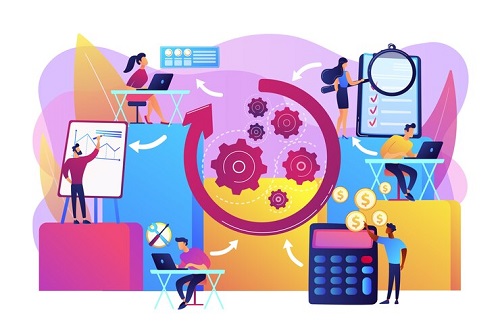As technology continues to advance at an unprecedented rate, the fields of Artificial Intelligence (AI) and Machine Learning (ML) are at the forefront of innovation. The future of AI and ML holds immense potential, with several key trends and developments shaping the landscape of these transformative technologies.

- Ethical AI and Responsible ML:
As AI and ML systems become more pervasive in our daily lives, there is a growing emphasis on ethical considerations and responsible deployment. The future will see increased focus on developing AI and ML solutions that are transparent, fair, and accountable, addressing concerns related to bias, privacy, and societal impact. - Explainable AI:
Explainable AI, or XAI, is an emerging trend that aims to make AI systems more transparent and understandable to humans. As AI becomes more complex, the ability to interpret and explain its decisions will be crucial, particularly in high-stakes applications such as healthcare, finance, and autonomous vehicles. - Edge AI and Federated Learning:
The proliferation of Internet of Things (IoT) devices has led to the rise of Edge AI, where AI and ML computations are performed locally on the device, reducing latency and enhancing privacy. Additionally, federated learning enables training ML models across decentralized edge devices, paving the way for collaborative and privacy-preserving AI. - AI-Driven Automation:
The future of AI and ML will see continued integration into various industries, driving automation and efficiency. From manufacturing and logistics to healthcare and customer service, AI-powered automation will revolutionize processes, optimize resource allocation, and enable new levels of productivity. - Personalized AI Experiences:
Advancements in AI and ML algorithms will enable highly personalized experiences across various domains, including personalized healthcare treatments, tailored educational content, and customized product recommendations. The future will witness AI systems that adapt and evolve based on individual preferences and behaviors. - Quantum Computing and AI:
The intersection of quantum computing and AI holds great promise for solving complex problems that are currently intractable for classical computers. Quantum AI algorithms and hardware developments are poised to unlock new frontiers in optimization, simulation, and machine learning tasks. - AI for Social Good:
The future of AI and ML will see an increased focus on leveraging these technologies for social good, including applications in climate modeling, disaster response, healthcare accessibility, and poverty alleviation. Ethical AI frameworks will drive the responsible use of AI for addressing global challenges. - Continuous Learning and Adaptation:
AI and ML systems will evolve towards continuous learning and adaptation, enabling them to dynamically update and improve their capabilities based on real-time data and changing environments. This trend will lead to more agile and responsive AI solutions across diverse domains.
In conclusion, the future of AI and ML is brimming with transformative trends and developments that are poised to reshape the technological landscape. As these technologies continue to advance, it is essential to prioritize ethical considerations, transparency, and responsible deployment to harness their full potential for the betterment of society.


